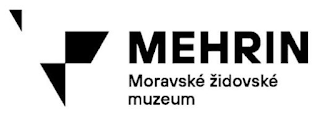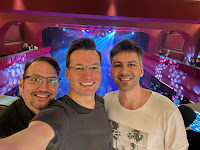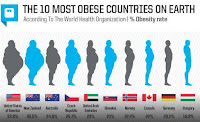 When I first moved here I made a comment at work that I was going to get so fat here with this being the land of beer and potatoes. A friend sniped back with, "but I thought that all Americans were already fat." Well not quite right but not wrong either.
When I first moved here I made a comment at work that I was going to get so fat here with this being the land of beer and potatoes. A friend sniped back with, "but I thought that all Americans were already fat." Well not quite right but not wrong either.
In 2016, the World Health Organisation put the USA's obesity rate at 33,8%. Czech Republic was 24,2%. Czechs have been getting bigger.
 In 2019, the five EU countries with the highest percentage of obesity were Croatia, Malta, Czechland, Hungary, and Slovakia. France has the lowest obesity levels in the EU, followed by the Netherlands, Italy, Belgium, and Sweden. Czechs were had the 3rd highest levels of obscenity in the EU.
In 2019, the five EU countries with the highest percentage of obesity were Croatia, Malta, Czechland, Hungary, and Slovakia. France has the lowest obesity levels in the EU, followed by the Netherlands, Italy, Belgium, and Sweden. Czechs were had the 3rd highest levels of obscenity in the EU.
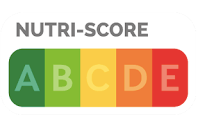 Here's where I think that Nutri-Score would be a good thing. Nutri-Score is a "traffic light system" that ranks food products on a scale from A to E, where A is the best and E is the worst, and it is clearly visible of the front of the food's packaging.
Here's where I think that Nutri-Score would be a good thing. Nutri-Score is a "traffic light system" that ranks food products on a scale from A to E, where A is the best and E is the worst, and it is clearly visible of the front of the food's packaging.
Food products get a lower rating if there is:
- high energy density per 100 g or per 100 ml
- high sugar content
- high content of saturated fatty acids
- high salt content.
There's a higher rating when:
- contains fruits, vegetables, nuts and legumes
- contains fiber
- contains protein
- contains rapeseed, walnut and olive oil
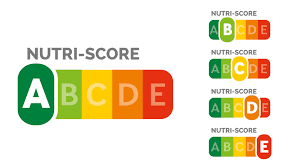
Nutri-Score was founded in France in 2013 and in 2017 the French Health Ministry officially recommended it. Since then it has rolled out in Belgium,
Spain,
Germany,
Switzerland, the Netherlands, and
Luxembourg. The system has been recommended by the
European Commission and the World Health Organization.
So far it's not mandatory across the EU but I'm sure that it will be eventually. Some companies such as Nestlé and Danone have announced that they will start using Nutri-Score in
Portugal,
Slovenia, and
Austria even though it's not required in those countries.
Not all countries are onboard with the system.
Poland, Czechland,
Cyprus,
Greece, Hungary,
Latvia, and
Romania all oppose it. Italy believes that the system puts the traditional Mediterranean diet at a disadvantage.
The Czech Ministry of Agriculture isn't in favour of the system but it will tolerate international labels with Nutri-Score. The ministry is not in favour of a mandatory front-of-package label and believes that the Nutri-Score formula is too simplistic because it doesn't consider the size of a portion or how food is prepared.
Nestlé will start using Nutri-Score in Czechland in 2023.
Here's an interesting video I found out on YouTube where CNN talks about some of the differences between the US and Czech health care systems. Not exactly Nutri-Score or Obesity related but still kind of fitting. While the video is at least 12 years old already it's still pretty accurate.
Update: August 2022. Here's a short TV commercial for Nestle that shows the Nutri-Score label.
©Nestlé Cereálie CZ
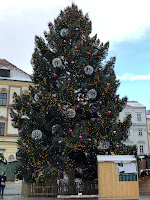
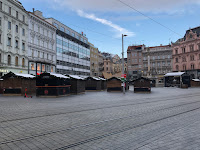

 It's not just Czechland that is shutting things down. In Germany, the sate of Saxony, which borders Czech Republic has closed clubs, bars, cultural and sports facilities, in addition to Christmas markets.
It's not just Czechland that is shutting things down. In Germany, the sate of Saxony, which borders Czech Republic has closed clubs, bars, cultural and sports facilities, in addition to Christmas markets.



























